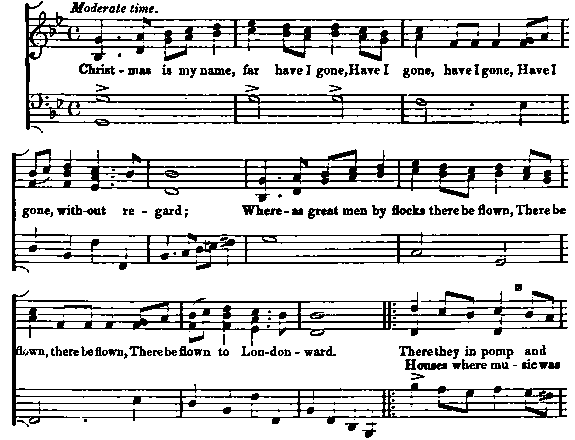Popular Music Of The Olden Time Vol 2
Ancient Songs, Ballads, & Dance Tunes, Sheet Music & Lyrics - online book
| Share page | Visit Us On FB |
|
464 ENGLISH SONG AND BALLAD MUSIC. |
||
|
" Now the Spring is come, turn to thy love, Their sweet tunes, their sweet tunes, their
To thy love, to thy love, to thy love; and do not stay : [sweet tunes,
make no delay. "Where I will fill thy lap full of flowres,
While the flowers spring and the birds do And cover thee with shady bowres, sing Come away, come away, come away,
And do not stay." This copy of the ballad, having been printed by the assigns of Thomas Symcocke, is of the reign of James L Christmais Lamentation must also be a ballad of the reign of Elizabeth or James I., although the Roxburghe copy is not of so early a date. Yellow starch is mentioned in the sixth stanza, and it came into fashion in the latter part of the reign of Elizabeth, and continued until November, 1615, the date of the execution of the celebrated beauty, Mrs. Turner, for participation in the poisoning of Sir Thomas Overbury. When the Lord Chief Justice Coke sentenced her to death, he ordered that, " as she was the person who had brought yellow starched ruffs into vogue, she should be hanged in that dress, that the same might end in shame and detestation." " Even the hangman who executed this unfortunate woman was decorated with yellow ruffs on the occasion." (Rimbault's Life of Overbury.)
The rhythm of the first part of the following tune is peculiar, from its alternate phrases of two and three bars, but, still, not unsatisfactory to the ear.
I have not thought it necessary to print, at length, all the repetitions of words that occur in the ballad, as they are sufficiently indicated by the first stanza which is here adapted to the music. |
||
|
|
||
 |
||